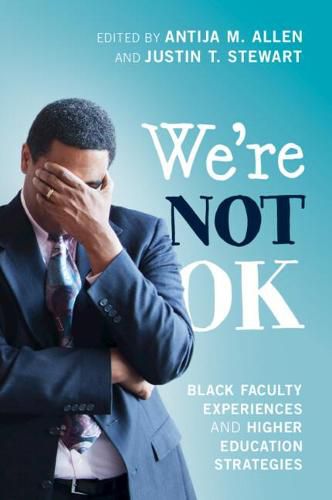Readings Newsletter
Become a Readings Member to make your shopping experience even easier.
Sign in or sign up for free!
You’re not far away from qualifying for FREE standard shipping within Australia
You’ve qualified for FREE standard shipping within Australia
The cart is loading…






In the United States, only 6% of the 1.5 million faculty in degree-granting postsecondary institutions is Black. Research shows that, while many institutions tout the idea of diversity recruitment, not much progress has been made to diversify faculty ranks, especially at research-intensive institutions. We’re Not Ok shares the experiences of Black faculty to take the reader on a journey, from the obstacles of landing a full-time faculty position through the unique struggles of being a Black educator at a predominantly white institution, along with how these deterrents impact inclusion, retention, and mental health. The book provides practical strategies and recommendations for graduate students, faculty, staff, and administrators, along with changemakers, to make strides in diversity, equity, and inclusion. More than a presentation of statistics and anecdotes, it is the start of a dialogue with the intent of ushering actual change that can benefit Black faculty, their students, and their institutions.
$9.00 standard shipping within Australia
FREE standard shipping within Australia for orders over $100.00
Express & International shipping calculated at checkout
In the United States, only 6% of the 1.5 million faculty in degree-granting postsecondary institutions is Black. Research shows that, while many institutions tout the idea of diversity recruitment, not much progress has been made to diversify faculty ranks, especially at research-intensive institutions. We’re Not Ok shares the experiences of Black faculty to take the reader on a journey, from the obstacles of landing a full-time faculty position through the unique struggles of being a Black educator at a predominantly white institution, along with how these deterrents impact inclusion, retention, and mental health. The book provides practical strategies and recommendations for graduate students, faculty, staff, and administrators, along with changemakers, to make strides in diversity, equity, and inclusion. More than a presentation of statistics and anecdotes, it is the start of a dialogue with the intent of ushering actual change that can benefit Black faculty, their students, and their institutions.